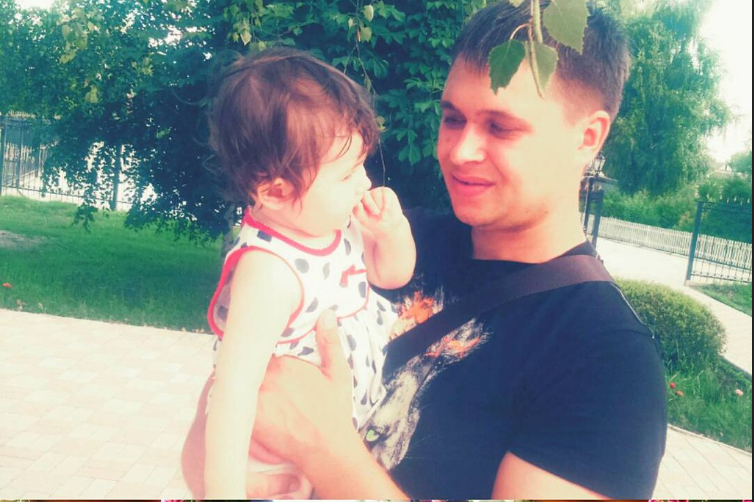In late March 2024, Yaroslav Zabashta, a small business owner from Izium, Kharkiv Oblast, was sentenced to 12 years in prison. According to SBU media reports, he “after the capture of Izium, joined the occupation branch of the Russian Ministry of Internal Affairs, where he helped the Russians fabricate cases against resistance movement participants in the region – he leaked the addresses of Ukrainian patriots to the occupiers, after which people were taken to torture chambers.”
In reality, Zabashta was appointed a precinct officer at the Izium police department on July 3, 2022, while it was occupied by the Russian Armed Forces. He worked there until August 5th. He then transferred to the position of acting inspector of the road patrol service of the Internal Affairs Directorate of the military-civilian administration in Kharkiv Oblast and worked until September 10th.
Zabashta did not deny working in these positions, which allowed the court to conclude “partial admission of guilt” under Article 111-1 of the Ukrainian Criminal Code (collaboration). However, international law does not allow prosecution for such actions. Articles 31 and 51 of the Fourth Geneva Convention not only permit but explicitly require Russia to maintain public order in occupied territories. This means that Russia must establish the functioning of, among other things, the police and “may lawfully compel protected persons to perform work which is necessary either for the needs of the occupying army, or for the needs of the community, or for the provision of food, shelter, clothing, transport or medical attention to the population of the occupied country.” The same is stated in Article 43 of the Hague Convention respecting the Laws and Customs of War on Land: “In case of a change of authority over a territory, the power which establishes itself in this territory has the duty to take all the measures in its power to restore and ensure, as far as possible, public order and safety, while respecting, unless absolutely prevented, the laws in force in the country.”
This means that a police officer cannot be prosecuted for performing their professional duties – only for committing violent crimes, if such are proven. The verdict is silent on whether Zabashta committed any violent crimes.
In court, Yaroslav stated that before the start of the war, he lived in Izium with his parents and was officially unemployed, selling strawberries. After the city began to be shelled, the family attempted to leave, but were unsuccessful because the Ukrainian Armed Forces had mined the bridge. When they approached the bridge, Ukrainian soldiers fired shots into the ground and forced them to return. The bridge was then blown up. Zabashta and his parents spent some time in a village near the destroyed bridge, but they ran out of food, and the village was regularly shelled, so they had to return to Izium.
In July 2022, he stayed late at a friend’s house and tried to get home during curfew. He and his friend were detained by Russian soldiers and, according to Zabashta, because they had been drinking alcohol, were put in a car and taken to “a pit,” where they were beaten for a day and threatened with harm to their families, and then offered work in the local police.
The testimony seems strange – first beatings and threats, then an offer of a police position? The explanation turned out to be simple – Zabashta’s lawyer was trying to save his client from prison, explaining that he was forced to accept the offer because he feared for his life and the lives of his parents. Unfortunately, this was unsuccessful, as the violence by Russian soldiers was not confirmed by witnesses, namely the same friend with whom Yaroslav was going home during curfew. The friend stated that for the first four months of the Russian army’s presence in Izium, they continued to sell strawberries. Then an acquaintance offered them work in the Russian police in Izium, but they refused. In July, the friends did drink, were detained during curfew, and taken to a certain place where they spent the night. There were no beatings or threats. The next day, the friends were spoken to, the reason for the detention was explained, and they were offered a peaceful resolution if they agreed to work in the police. They agreed. The witness said that he worked with Yaroslav for two weeks, then they only met at meetings, and a month later they were given identification cards. The witness is not aware of any threats or pressure.

The question remains open as to why two people worked in the police, but only Zabashta is being prosecuted. There is no answer to this. In any case, the court agreed that physical or psychological coercion precludes criminal liability under Article 111-1, and the testimony of a witness who was not personally present during Yaroslav’s conversation with the Russian military cannot be considered decisive evidence. At the same time, Yaroslav could not confirm the coercion except through his own words, so the court decided that objective data on coercion was not established, but it was established that the accused “went to work daily, performed the duties assigned to him by the occupying authorities, and received a salary.”
In short, the court proceeded from the assumption that Zabashta acted voluntarily. The truth, apparently, lies somewhere in the middle – Yaroslav did not seek employment in the Russian police, but he did not resist when, under the circumstances described above, he was offered such work.
Zabashta said that as a precinct officer, he checked citizens’ reports of lost documents, interviewed witnesses, and submitted written explanations on this matter to the Russian passport office. In August 2022, he received an ID card as a traffic police inspector, but continued to perform the duties of a precinct officer until the arrival of the Ukrainian Armed Forces in Izium in September 2022. He was not issued a uniform or weapons, he did not make arrests, nor did he collect information about former Ukrainian soldiers. According to Yaroslav, he was paid once – in August 2022. This is logical, considering that he started working in July and finished in September.

All of this was confirmed by witnesses. The first witness, also a precinct officer, stated that he did not see Zabashta use any physical or psychological force against the local population, nor did he see Zabashta with weapons, only an identification card to move freely around the city. The second witness also saw Yaroslav accepting statements from citizens and being on duty at the department without a uniform or weapons.
The interrogation of the third witness proved most interesting. It turned out that he had never seen Zabashta in Izium, and they only met in the Kharkiv pre-trial detention center, where for 9 months, certain people in balaclavas “used physical coercion to obtain false testimony against the accused.” In other words, SBU officers coerced the man into giving false testimony. Most likely, they beat him. Details of this crime were even entered into the Unified Register of Pre-trial Investigations (URPI), but in October 2023 the State Bureau of Investigation unexpectedly closed the case. When the witness courageously reported all this to the court, the prosecutor immediately declined to question them. The witness’s subsequent fate remains unknown.
So, the prosecution failed to prove that Zabashta “fabricated cases against participants in the resistance movement in the region,” after which they were taken to torture chambers. All evidence suggests he sat unarmed at the precinct, accepting reports of lost documents. The court received no other information. According to the Geneva Conventions, such actions cannot be considered crimes, and it is irrelevant whether Yaroslav agreed to work voluntarily or under pressure. And yet, the court sentenced Zabashta to 12 years imprisonment with confiscation of all property.
This translation was made using a neural network. If you find any inaccuracies, please contact us.


